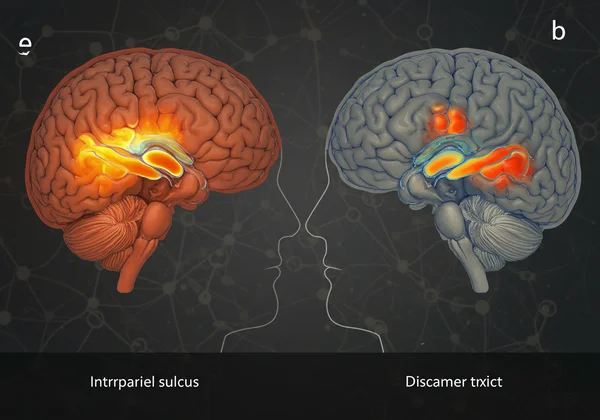Dyscalculia Test: Debunking Myths & Understanding Math Challenges
September 15, 2025 | By Aisha Bennett
Have you or someone you know always struggled with numbers, feeling perpetually "just bad at math"? This common phrase often masks a deeper issue, leading to years of frustration, anxiety, and self-doubt. The world of mathematical learning is filled with misconceptions, and at the heart of this confusion are numerous dyscalculia myths. Do I have dyscalculia or am I just bad at math? This is a question countless people ask themselves. This article is here to cut through the noise, separating scientific truths from common fictions about this real and distinct learning difference.
For too long, these challenges have been dismissed as laziness or a lack of effort. But understanding the reality behind dyscalculia is the first step toward empowerment and finding effective strategies. It's time to replace confusion with clarity. If you're ready to understand the facts, you can take our free dyscalculia test with a supportive tool designed to offer initial insights.

Is Dyscalculia Real? Understanding the Science Behind Math Challenges
One of the most damaging misconceptions is the very question of its existence. Let's be clear: dyscalculia is a scientifically recognized specific learning difference with a neurological basis. It's not a matter of opinion or an excuse for poor performance; it is a genuine challenge in processing numerical information, much like dyslexia is a challenge with language.
Understanding this reality is crucial for parents advocating for their children, adults seeking self-understanding, and educators aiming to support every student. Acknowledging this struggle is vital; it validates individual experiences and paves the way for the right support and accommodations. The first step in this journey is often getting an initial idea of where the difficulties lie through a comprehensive free dyscalculia screening.
Beyond "Just Bad at Math": What Dyscalculia Truly Is
Being "bad at math" is a vague and often judgmental label. Dyscalculia, on the other hand, is a specific term for difficulties with number sense. This core deficit affects the ability to understand, remember, and manipulate numbers and numerical concepts. It's not about a single skill but a collection of challenges that can impact everything from telling time and managing money to understanding graphs and performing mental calculations.
Individuals with dyscalculia may struggle to grasp the concept of quantity, have trouble connecting a number (5) to the word ("five"), or fail to see patterns in numbers. This is a fundamental difference in cognitive processing, not a reflection of a person's overall intelligence or potential.
The Neurological Roots: How Brain Differences Impact Number Sense
Modern neuroscience offers strong evidence: dyscalculia is tied to differences in brain structure and function. Research using tools like fMRI has shown that individuals with dyscalculia exhibit different patterns of brain activation when performing numerical tasks. Specifically, areas of the brain responsible for numerical processing, such as the intraparietal sulcus, may function less efficiently.
These neurological roots mean that the difficulty is not something a person can simply "try harder" to overcome. It highlights the need for specialized teaching strategies that work with, not against, these brain-based differences. Recognizing this science helps shift the focus from blame to support, empowering individuals to seek tools and methods that align with their unique cognitive profile.

Common Dyscalculia Myths & Math Learning Misconceptions Debunked
Dispelling common math learning misconceptions is key to fostering a supportive environment. These myths create barriers to identification and intervention, leaving many to struggle in silence. Let's tackle some of the most pervasive fictions head-on.

Myth: Dyscalculia Only Affects Children or Is Only About Basic Math
This is a widespread and harmful myth. While often identified in childhood, dyscalculia is a lifelong condition that persists into adulthood. An adult with dyscalculia won't simply "grow out of it." Their challenges may evolve, shifting from learning multiplication tables to struggling with budgeting, calculating tips, or interpreting data in the workplace. The impact on daily life for adults can be significant.
Furthermore, dyscalculia is not limited to basic arithmetic. It can affect higher-level math concepts, including algebra and geometry, as well as related skills like spatial reasoning and time management. Understanding its broad and lasting impact is vital for providing support across all age groups.
Myth: Dyscalculia is Just "Dyslexia for Numbers"
While this phrase is a simple way to introduce the concept, it's an oversimplification. Dyscalculia and dyslexia are distinct learning differences with different neurological underpinnings. Dyscalculia affects number processing, while dyslexia primarily affects language processing.
However, they can co-occur. A significant number of individuals with one condition also have the other. It's crucial to assess for both if a student or adult shows signs of learning challenges. Confusing the two can lead to ineffective support strategies that don't address the specific needs related to number sense.
Myth: You Can "Outgrow" Dyscalculia or It's a Sign of Low Intelligence
Perhaps the most damaging myth is that dyscalculia is connected to intelligence. There is absolutely no correlation between dyscalculia and a person's IQ. Many individuals with dyscalculia are highly intelligent, creative, and successful in many areas of life, particularly in fields that are not number-intensive.
Labeling someone's math struggles as a sign of low intelligence is inaccurate and deeply stigmatizing. It undermines self-esteem and discourages individuals from seeking the help they need. Dyscalculia is a specific challenge, not a global deficit.
Myth: People with Dyscalculia Can't Succeed in Math or STEM Careers
This myth fosters a sense of hopelessness, but it is far from the truth. While dyscalculia presents real challenges, it does not close the door on success in math-related fields. With the right strategies, accommodations, and technological tools, individuals with dyscalculia can and do thrive in STEM careers.
Success often involves leveraging strengths, such as strong verbal or creative problem-solving skills, and using assistive technology to manage areas of difficulty. The key is early identification and the development of personalized coping strategies. Believing in one's potential is the first step, and a clear understanding of one's learning profile through an online dyscalculia test can build that foundation.

Combating Dyscalculia Stigma: Fostering Empathy and Support
Overcoming the dyscalculia stigma is as important as understanding the science. The emotional and psychological impact of living with an invisible learning difference can be profound, affecting confidence, mental health, and life choices. Building a culture of empathy and support begins with knowledge.
The Emotional Toll of Misunderstanding and Self-Blame
For years, individuals struggling with numbers have been told they are "lazy," "not trying hard enough," or simply "not a math person." This constant negative feedback leads to deep-seated math anxiety, avoidance of situations involving numbers, and a pervasive feeling of inadequacy. The internal narrative of self-blame can be more debilitating than the dyscalculia itself.
Parents watch their children's confidence plummet, while adults may limit their career aspirations based on a false belief about their own capabilities. Recognizing the emotional toll is the first step toward healing and rebuilding self-worth.
Empowering Individuals Through Accurate Knowledge and Early Identification
Knowledge is power. When individuals, parents, and educators understand that dyscalculia is a real, brain-based condition, it reframes the entire conversation. Blame is replaced with understanding, and frustration gives way to a search for solutions. This is where empowerment begins.
Early identification is crucial. The sooner a person understands their challenges, the sooner they can access strategies and tools that work for them. A simple, accessible screening can be an invaluable first step. It provides a private, non-judgmental way to explore these difficulties and can lead to a personalized AI-driven report that offers not just a score, but a roadmap for support. If you are ready to move from doubt to action, explore our test.

Beyond Myths: Finding Clarity, Confidence, and Support for Math Challenges
We've journeyed from fiction to fact, debunking the harmful myths that surround dyscalculia. It is not a sign of low intelligence, a lack of effort, or something a person will simply outgrow. It is a real and manageable learning difference that deserves to be understood with compassion and addressed with effective, evidence-based strategies.
Your path forward begins with empowerment. When you embrace accurate knowledge, you can combat stigma and build confidence. For parents, adults, and educators, the journey starts with a single, courageous step: seeking clarity. Understanding your or your child’s unique cognitive profile is the key to unlocking potential.
Are you ready to leave the myths behind and discover a path of support and understanding? Start the test today to gain valuable insights with our free, expert-designed screening tool.
Frequently Asked Questions About Dyscalculia & Testing
How do you get tested for dyscalculia? A formal diagnosis is conducted by a qualified professional, like an educational psychologist. However, a great first step is taking a comprehensive online screening test. Our free dyscalculia assessment is designed by experts to help you identify signs of mathematical challenges and provide a detailed, AI-powered report with personalized strategies.
Do I have dyscalculia or am I just bad at math? This is a common question. While many people find math difficult, dyscalculia involves a persistent, pattern-based difficulty with core number sense that doesn't improve with typical instruction. Taking a screening tool can help differentiate between a general dislike for math and the specific cognitive signs associated with dyscalculia.
What are the common signs of dyscalculia in adults? Signs in adults can include intense anxiety when dealing with numbers, difficulty with budgeting or financial planning, trouble remembering phone numbers or dates, challenges with mental math, and a tendency to get lost or struggle with directions. If these signs feel familiar, it may be worth exploring further.
Is there a truly free dyscalculia test available online? Yes. Our core dyscalculia screening test and the optional AI-generated personalized analysis report are completely free. We are committed to providing accessible resources to help individuals, parents, and educators understand and address math learning challenges without financial barriers. You can try our free tool anytime.
Can dyscalculia be cured, or is it a lifelong condition? Dyscalculia is considered a lifelong condition, as it is rooted in how the brain is structured. However, it is not a life sentence of struggle. With the right strategies, support, and tools, individuals with dyscalculia can significantly improve their skills, manage their challenges effectively, and lead successful personal and professional lives.